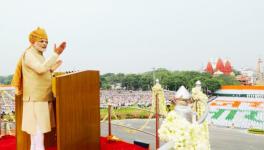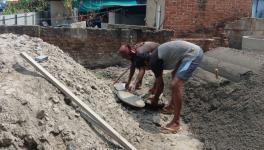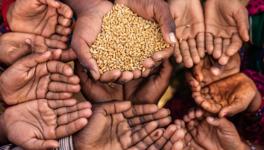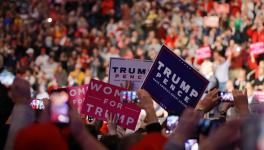New Beef Ban: Massive Economic Damage and a Hateful Message to Muslims
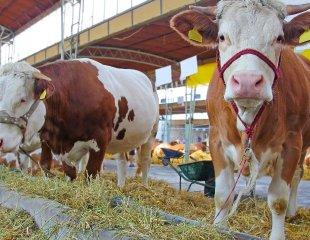
Photo Credit: branislavpudar
The Prime Minister of India, Narendra Modi, signed a new rule against the slaughter of cattle and the eating of beef (Prevention of Cruelty to Animals, Regulation of Livestock Market, Rules 2017). It is highly unlikely that these rules were framed to protect animals. The original act—the Prevention of Cruelty to Animals Act, 1960—permits the humane slaughter of animals for food. The new rule goes against the letter of the original act, and does so for religious and mischievous reasons rather than on ethical grounds for the sake of the animals.
The order came just before the Muslim holy month of Ramadan. Muslim families who fast during the day often eat meat late in the evening. Given the predisposition of this government and its parent organization—the fascistic RSS—it is more than likely that the order came on the heels of Ramadan to send a message to India’s 120 million Muslims.
But of course the majority of Indians have no moral problem with the consumption of beef or any other kind of meat, says Indian journalist P. Sainath. A look at the most recent Census shows that more than 42 percent of the Indian population are Dalits, Muslims, Adivasis, Christians and Sikhs. None of these populations are particularly put off by the consumption of meat, with some of these populations reliant upon beef in their diet. If you add in the tens of millions of Hindus in states such as Kerala, Goa and Manipur who eat beef, then the numbers inch up to half the population. "How little we know about beef and the role of beef in our society," Sainath tells me.
The order from Modi not only impacts those who eat beef, but also will have a detrimental impact on the leather industry and the meat producers (who not only provide for the domestic market, but also for overseas markets).The leather industry is valued at $17.8 billion and takes care of almost all of India’s footwear needs and provides raw materials for the pharmaceutical industry.
The beef ban, which has been in effect in several states already, has had an impact on livestock holdings. Farmers no longer want to own cattle, afraid that when the animals age there will be no resale value for them. The livestock census shows that those states with bans on cow slaughter have seen a decline in livestock. Those states with no decline on cow slaughter, on the other hand, have seen their numbers of cows either remain the same or rise. As P. Sainath told me, "The cow slaughter ban is anti-cow."
Sainath knows a great deal about cows. He has been studying the social impact of changes in rural India for over 30 years. In his first major book, Everybody Loves a Good Drought (1996), Sainath tells the story of how rural development specialists attempted to bring in foreign cows to replace Indian cows in the Kalahandi district of Odisha. In the attempt to provide relief to the rural areas, the well-meaning but deluded development specialists castrated the local Khariar bulls and left the locals worse off than before. "I have five cows and I buy milk daily from the market," Bishwamber Joshi told Sainath.
Concern for the cow, the bull and the buffalo has rarely been central in India. Even those sections of the hard right that are eager to demonstrate their religious piety toward the cow do not often know what they are doing. Shelters for cows they capture are poorly run. News reports frequently appear of cows dying in large numbers in these shelters (gaushalas).
Over the course of this year, cow vigilante groups have lynched people who seem to be taking cows to the slaughterhouse. Brutality against these poor men and women, often Muslims or Dalits, has been captured on cellphone videos. It initially startled the public, but now, like so much of this kind of violence, has ceased to provoke revulsion. Meanwhile, the cows who were being led to market or to the slaughterhouse disappear from the story. What happens to them? It is not relevant. What is relevant is that the men who do the violence focus more on those vulnerable men and women than on the purported focus of their attention: the cow.
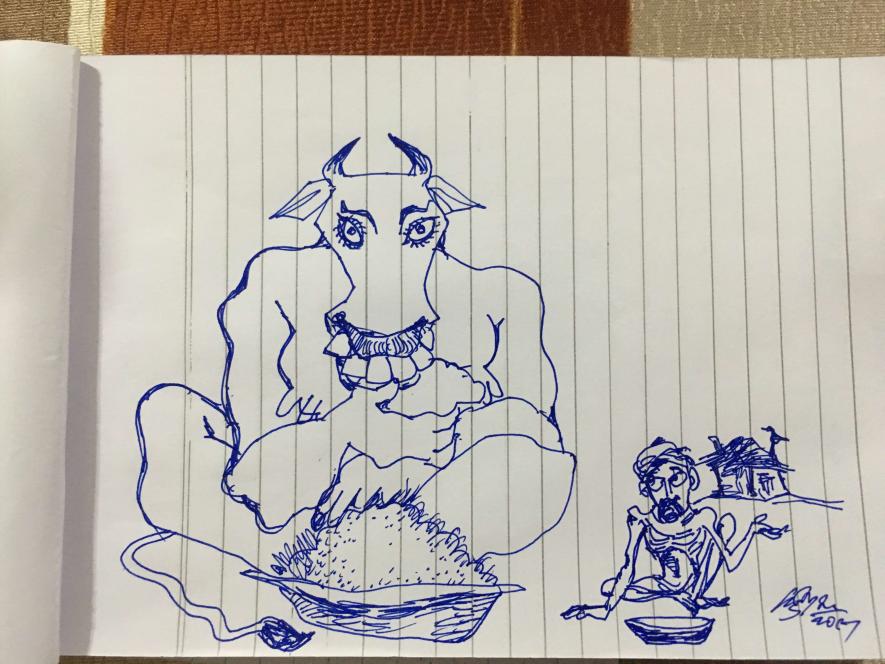
Cartoon by Srirasa
The government’s decision to push the beef ban in the context of these lynchings only emboldens such vigilante violence. It means that the government gives immunity to such actions; in fact, encourages them in future. It also shows such vigilante groups that the government is on their side and does not see their actions as outside the bounds of democratic society.
From Kerala, where the Left Democratic Front government has just completed its first year, the Chief Minister Pinarayi Vijayan wrote a letter to the Indian Prime Minister. Vijayan, a leader of the Communist Party of India (Marxist), posted this letter on his Facebook page. Meat, wrote Vijayan, "is the primary source of protein for millions of poor and ordinary people in this country"— 780 million of whom live in deprivation. "People of all faiths consume meat in our country, not just the minorities. Once the prohibition comes into effect," he continued, "it will not only deprive them of adequate nutrition, but also prevent the availability of raw material for the leather industry." These orders, he wrote, "prove to be a challenge in upholding our plurality, the essence of our nation."
Left activists, led by the Students Federation of India (SFI), held beef festivals, where they cooked beef and then shared their food in public. In Kerala, these festivals went by largely without any tension. In Bangalore, the hard right came to challenge the students, who were all arrested. In Chennai, one student, Sooraj, was badly beaten by supporters of the hard right at the Indian Institute of Technology (Madras). These activists, led by the students, are making a public declaration that they all resist the government’s orders.
The Kerala State Secretary of the SFI, M. Vijin, said that the government "should be concerned about whether people have enough nutritious food to eat. Are they bringing this rule to remove poverty in Indian villages?" He points his finger toward the depleted agricultural system in the country and to the grave problems of starvation. But Vijin is also concerned about the rights of people and the growing vigilante power in the country. "We will not allow this fascism to invade our kitchens," Vijin says.
Vijay Prashad is professor of international studies at Trinity College in Hartford, Connecticut. He is the author of 18 books, including Arab Spring, Libyan Winter (AK Press, 2012), The Poorer Nations: A Possible History of the Global South (Verso, 2013) and The Death of a Nation and the Future of the Arab Revolution (University of California Press, 2016). His columns appear at AlterNet every Wednesday.
This article was made possible by the readers and supporters of AlterNet.
Disclaimer: The views expressed here are the author's personal views, and do not necessarily represent the views of Newsclick.
Get the latest reports & analysis with people's perspective on Protests, movements & deep analytical videos, discussions of the current affairs in your Telegram app. Subscribe to NewsClick's Telegram channel & get Real-Time updates on stories, as they get published on our website.













